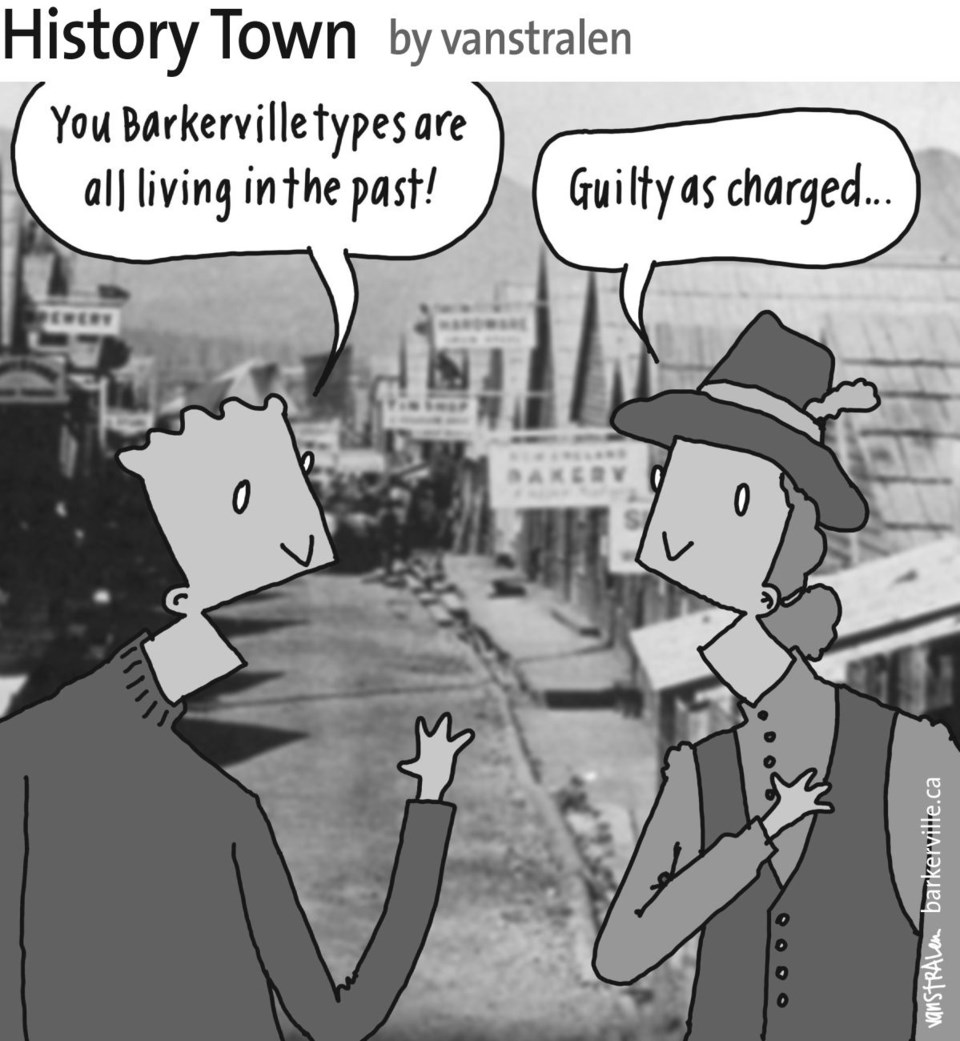I have often found the best museum designers and educators perceive, interpret and consider stories in a constantly evolving way, according to what is happening in the modern world around us. Good historical interpreters will be mindful of where we are now, as a society, and will allow that awareness to shape their narratives. We must always research and examine our historical stories from fresh and contemporary angles.
When I began working at Barkerville in 1993, the stories we told on-site were mostly about the guts, glory and heartbreak inherent in the act of searching for gold. We wanted to show how a singular and exciting event, the Cariboo Gold Rush, affected the creation of British Columbia and ultimately, Canada. Barkerville is an historical gem, a stalwart survivor of a world-changing moment, and we wanted our stories to help the site shine on an international stage.
In the early 1990s British Columbia was in what academia is now calling a 'post-colonial' era. As interpreters of that era, we were trying to make sense of who we were now in the historical context of Canada and its place in the world. But even then the idea that our province was mostly built on a glorious wave of adventure by international thrill-seekers was an uncomfortable fit. The story was already changing. The story is always changing.
During my now 30-year career as a museum theatre specialist, I have seen British Columbia's story became more inclusive, and more realistically concerned with human flaws. We no longer need or want our story to fit prettily into a narrative that makes us feel safe and respectable. We want to understand who we are in light of who we have been, warts and all.
In the late 1990s and early 2000s, for example, the Chinese cultural history program in Barkerville began to grow and bloom. By then we were thinking more deeply about the dark and difficult realities presented by the gold rush's first waves of what we now call 'multiculturalism.' Racism and exclusionary laws thrived in places like BC where, for the first time in human history, people were voluntarily traveling on a mass scale and settling in lands far away from their homes.
A desire to find and tell realistic stories of the women of the goldfields has also grown more urgent over the years. Wherever history happens women are there, and the casual exclusion of the female experience from historical narratives now feels wildly inappropriate as we more fully examine our collective tale.
The Truth and Reconciliation Commission recently released its final report to the public. I watched the events surrounding this momentous occasion from both the perspective of a lifelong BC resident with mixed European and indigenous heritage, and as a professional interpreter of Canadian history. I believe this report is a strong indicator that Canada is sharply moving away from a period of post-colonialism. I think, rather, that we are actively approaching a state of 'decolonization.'
Colonization can be described as settlement. It can also be described as invasion. How one chooses to describe the facts inalterably colours the story. As an interpreter of British Columbia's past, it is my responsibility to not only think hard about how it might have felt to be a settler in a foreign land, but also how it felt to be among an indigenous community whose reality was changed forever by hordes of invading foreigners driven mad by the call of natural resources buried deep in the guts of our home. It is my further responsibility as an interpreter to carefully watch and read the news right now, and allow this very big shift in our society to shape how we present the stories we have been entrusted with telling.
It may seem counterintuitive to say that history is always changing. How can something that has already happened be fluid and alive? But it is. History only really exists in the way we perceive it - it changes as we change. History changes according to how we understand it, how we feel about it, and how we use it to make sense of who we are now. The story of Barkerville is dynamic and grows ever richer as we respect the present while we honour the past, and I look forward to the changes that are yet to come.



